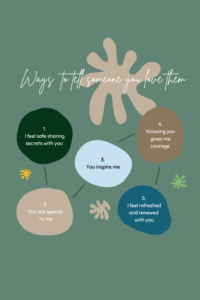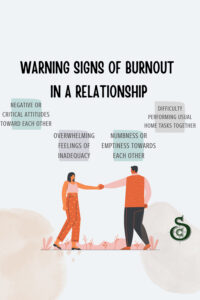Relationship Tips And How Couples Counseling Can Help
What habits or behaviors do you practice in your relationship?
- A common habit is that of having a date night.
- A common behavior is listening and not interrupting.
Habits and behaviors can if used appropriately strengthen your relationship. I want to share with you, the habits and behaviors below that you can implement to improve your relationship.
1. Stick to one topic before going to another one.
One common challenge that couples experience is starting a conversation on one topic and adding one too many more. This means that you and your partner are talking about the dishes and 5 minutes into the conversation, the topic grows from today’s dishes to 5 different things that took place in the last 10 years.
When this happens people often do not feel heard. The conversation shifts to being one with defensiveness or attacking.
To address this, this considers making an agreement to discuss one topic before moving to another. This can help you keep you and our partner on the same page.
If you are ready to start relationship counseling with Santos Counseling PLLC, click here.
2. Listening without interrupting
Do you remember in grade school how the rule was to wait your turn if you want to speak? Another rule was to raise your hand and wait to be called in. These rules provided the school setting with a space that highlighted respect, active listening, and patience.
I want you to think about how you feel when someone interrupts you.
I assume that you would feel hurt or disrespected.
Now consider how you would feel if your partner actively listened.
I assume that you would feel good, supported, and connected to a person that is showing you time.
3. Not making assumptions.
You probably have heard the saying, “do not read your partner’s mind”.
As a relationship counselor, I want to share some of the detail of why it’s vital to remove making the practice of assumptions.
When you make assumptions about how your partner feels, what they are about to do, or why they reacted the way that they did, you are speaking for your partner.
When a person feels that they are heard, there tends to be an increase in positive feelings. Such as experienced trust, respect, and love.
I used to work with a couple who engaged in making assumptions. 9 out of 10 times it led to distance, disconnect, and conflict. During one couple of counseling sessions. One partner was mid-way through sharing their story. The other partner interrupted and spoke for the other partner. They basically told the partner why they did what they did. This created a snowball effect.
During the session, I asked the partner who was interrupted to share how they felt when the interruption took place. The partner disclosed feeling rejected, ignored, devalued, and stuck. They shared feeling lost in the relationship due to at times feeling that there was no point to share their feelings or perspective because their partner would just make an assumption.
I share the above to give your insight so that you are able to identify the negative impact of assumptions in relationships.
 4. Using “I” statements
4. Using “I” statements
“I” statements focus on providing space for genuine feelings to come out versus the quick negative emotional response. It’s very similar to an iceberg.
You are on a boat and see this massive iceberg sticking out of the water. Without a doubt, you know (rationally) that there is more ice under the water. At times what happens in relationships is that a person will behave or say something negative. The behavior or statement is the top of the iceberg.
The key is to identify what’s underneath. Using “I statements” helps people push beyond the immediate response and dig into the genuine feelings that lie beneath the water.
Once you master this skill, you’ll notice a strong improvement in your life and in the relationship.
Understanding how to use “I statement”
- “I feel hurt when I call you during the day and don’t receive a reply until you get home. I love when you take the time to connect with me. Like those days you send funny emojis or a simple question asking how my day is going. It helps me feel that we are connecting.”
Versus
- “You don’t think about anyone other than yourself. I called you at 9 AM and it’s 6 PM. You could have at least sent me a message. I can’t stand you.”
- “I feel angry and alone when we are communicating and you walk out of the house without an explanation.
Versus
- “Next time you walk away from me when I’m speaking to you, don’t expect me to be here.”
For a supportive resource on trust in a relationship click here.
 5. Engaging in small that strengthen the relationship.
5. Engaging in small that strengthen the relationship.
Relationships are like plants. If you properly care for the plant, it will in return grow.
If you deprive it, please know that just like the plant it too will slowly perish.
Use this as a point of reference. Aim to do the work. To water your plant.
The activity below is a healthy habit that you can implement in your relationship.
Step 1: Relationships have varying plants. I want you to think about the key pillars of a healthy relationship. Common pillars include:
- Trust
- Communication
- Respect
- Time Together
- Intimacy
Step 2: Agree on one pillar of the relationship that both find simple to talk about and work on. This pillar will be the plant that both will water.
Step 3: Independently write down ways to nourish the pillar (plant):
Step 4: Share with your partner your response. Use this space to talk and connect.
Step 5: Start watering the plant.
Step 6: After watering the plant, explore the questions together:
- Watering the plant made me feel (X) way towards you.
- Watering the plant made me feel (X) towards myself.
- Watering the plant taught me (X) about you.
- When I watered the plant, I felt…
6. Trying Couples Counseling
The first item that I want to share with you is that couples counseling can be helpful for all couples. You do not have to wait until there is an issue in the relationship.
Typically, what takes place is that most couples wait until a small problem becomes something too large to handle. They bring years of pain and unresolved challenges to a couples counseling session with the goal of addressing it.
I notice that healthy and successful couples do not wait. They take action and engage in behaviors that nurture positive change.
One couple I recall came to my office and wrote down on their initial intake paperwork, none. The answer highlighted that they did not have any problems in the relationship. I found this a bit interesting.
I sat with them and asked them the question.
- Why did you write in “none” for the reason you are seeking marriage counseling?
They shared that they love their relationship and account therapy as a key reason for why the relationship is healthy and successful. The couple shared with me that 1 to 3 times during the year, they schedule a marriage counseling appointment. They use the space to learn new ways to connect and of creative strategies that nurture deep love and connection.
I loved the idea and continue to encourage it today.
7. Practicing Green Flags In The Relationship
Relationships have red and green flags. The red ones are the unhealthy habits and behaviors that tear and hurt a relationship. The green ones are those that build and sustain the relationship.
Common green flags in the relationship include:
- Listening to your partner.
- Give your partner respect.
- Honoring your partners voice and decisions.
- Removing judgment and criticism.
The goal is to connect with your partner as a team and identify all of the green flags that are in your relationship and those that you want to add in. Once you do this, make it a goal to focus on daily practices that nurture positive behaviors.
Let’s imagine that you want to focus on the green flag of showing your partner respect by listening to them. You can do this by scheduling a 20-minute time block each day. Together you sit and talk. During the conversation, focus on waiting your turn to speak. Try your best to not interrupt or judge. Give your partner respect and compassion by validating their viewpoint and demonstrating that you in fact listening.
8. Build Values That Nurture The Relationship
What are the values that live in your marriage or relationship?
Values give people purpose.
Values give the relationship direction and fulfillment.
Successful couples have values that are sewn into the fabric of the relationship. The values live each day and are a direct part of the daily actions that the couple engages in.
I want you to think about what values you want in your relationship. Consider why the values are important to you, to the relationship, and to daily actions that would fulfill the value.
A common value is a wellness. It lives in the relationship when a couple takes time to go for a walk together or engage in a fitness workout.
The value does not fully work if you do not take action. Please be mindful of this.
Next time that you are with your partner, try to talk about values. Consider the following questions as a couple’s activity:
- What are the values that you want in the relationship?
- Why did you select the values?
- How can the values support a connection in the relationship?
- What activities can we do to actively engage in the value?
9. Support Your Partner’s Individuality
I often find that couples spend all of their time focused on what they can do together to improve the relationship. Though I completely comprehend the reasoning. I do think that it is equally important to focus on individuality.
Yes, please work together to strengthen your marriage. To build a deep emotional bond, foster friendship, and engage in quality time together.
In addition, spend time growing into your best version.
One unique behavior that is found in successful couples is that of individuality. It is seen when one partner fully supports the other’s vision, values, life work, and overall individuality.
So, what does this mean?
I worked with a couple a while back. She was a creator. Someone in the art field. Her partner honored her space. He would take time to watch the kids while she was creating. He would listen to her ideas and support her growth as an individual. She would do the same for him.
I noticed that the love and devotion they generously gave to each other directly strengthen the relationship.
You see, love grows when you are with someone that supports you. They support you for the person that you are and the hats that were before the relationship, and the roles that you may take on as the relationship moves forward.
At times we may lose sight and only see our partner like that.
A partner.
Or we may give them a label. Such as only seeing them as “dad” or “that’s mom”.
Of course, the roles come with love and fulfillment. Yet, they do not have to stand alone.
Successful couples understand the importance of individuality.
Below are questions that you can explore with your partner:
- Do I support your individuality?
- What were your life goals and dreams before our relationship?
- Do you feel that I actively listen and support your ideas?
- Do you feel that you are authentic in this relationship?
- What can I do to show up for you in a manner that supports your growth as an individual?
10. Successful Couples Disagree Constructively
You may find this particularly interesting.
If a couple of days, we do not argue.
As a relationship counselor, I was curious. I thought to myself, why.
The couple often shares one hidden gem. They have items that they could argue on. What they do is avoid arguments, brush it under the rug, or internalize it to some degree. All the actions are negative.
There is nothing wrong with disagreement.
At the end of the day, you and different than your partner. There will be a few items in life that you disagree on.
And it is important to share your disagreement.
Disagreement means that you are sharing your viewpoint. You are showing your partner that you see things in a different way.
The emphasis is on how you do it.
Successful couples hold the behavior of disagreeing in constructive ways.
Here is what successful couples do when they disagree:
- They do not judge or criticize.
- They wait their turn to speak.
- They listen with intent. This means that they are actively listening and can summarize what their partner shared.
- They try to validate and acknowledge their partners perspective.
- They show respect for the ability to have a conversation. This can be done by saying thank you after the conversation. Sharing gratitude for the time spent.
- They honor their partner’s viewpoint even if it is part of the disagreement. A common example of this is seen if your partner gives money to the homeless. You may feel that one shouldn’t. Your viewpoint is that the homeless will use the money in negative ways. Your partner sees things differently. She believes that it is a way of showing kindness and that the person receiving it can use it to move forward and create positive change in life. At this point, you can judge your partner. Or honor their viewpoint.
11. Healthy Self-Care Practice
Successful couples actively engage in healthy self-care practices.
Here is what takes place. In a relationship, you are more than likely going to experience internal or external stress. The stress can be internal, which is directly from the relationship. This can come about in something like conflict over where the keys are or whose turn it was to take out the trash. External stress can come from work obligations or major life changes taking place.
One key area to explore is self-care.
If you are not actively engaging in self-care, it is likely that stress will slowly build. As it builds you will not be able to contain it. When this happens, you’ll certainly notice that the stress is coming out.
This can take place with projections or unwanted behaviors. Such as feeling on edge or becoming short with your partner. Maybe in the past you were able to manage your emotions even during challenging moments in the relationship. The key difference today is that you are overly stressed and not practicing self-care. This makes it really difficult to tame negative or unwanted behaviors.
Successful couples actively engage in healthy self-care practices.
Self-care practices to try out:
- Going for a nature walk.
- Deep breathing exercises.
- Writing in a journal.
- Taking a break from social media.
12. Practice Healthy Boundaries.
When you think about boundaries consider a house and the front door. What you allow in serves you. What you close the door to does not serve you. It is your job to be the one that opens and closes the door.
In your relationship consider how boundaries play a role.
An example of a boundary is personal space and privacy. For instance, you may like to have your own time to destress after work. You share this with you partner and mention that you would like to sit in your room for 10 minutes. Just to unwind, relax, and practice deep breathing. Your partner rejects your request and goes into the room. This leads to conflict and distance.
In such a situation, it is important to explain and express to your partner why you want personal space. In addition, share how you feel or would feel if your personal space was taken from you.
For more supportive reads on relationship growth and healing use the links below:
- Marriage Counseling Questions To Strengthen Your Relationship
- 5 Signs You are in a healthy relationship
- 7 Habits Of A Healthy Relationship
- 22 Ways To Improve Your Relationship






